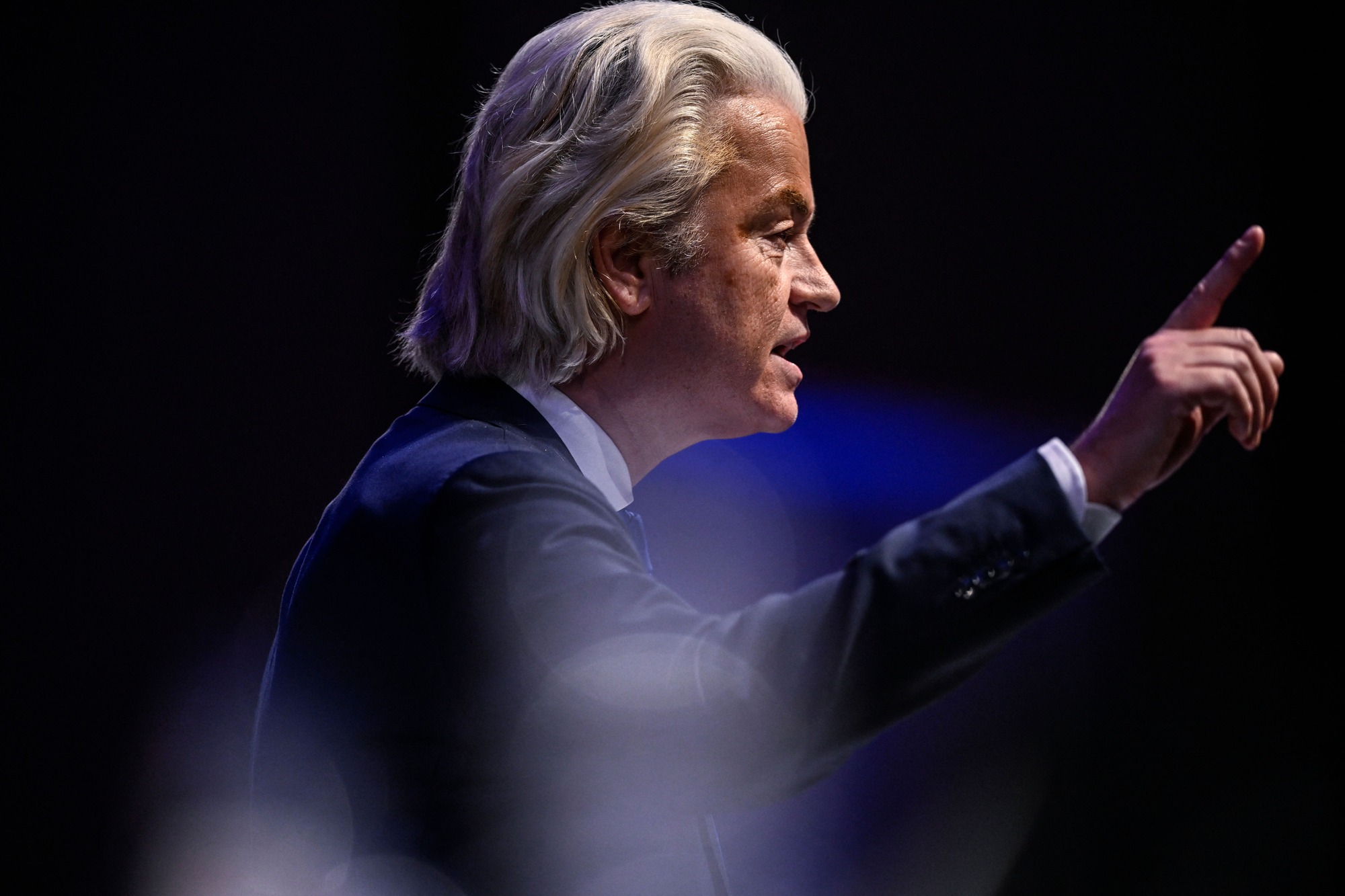Of the four parties which have just agreed to form a new government in the Netherlands, three can be described as populist — not least the Party for Freedom of Right-wing leader Geert Wilders.
The fourth, however, is the liberal People’s Party for Freedom and Democracy (VVD. Until Wilders’s shock victory in last year’s general election, the VVD was the dominant force in Dutch politics. Its former leader, Mark Rutte, has been Prime Minister since 2010 and is a major player in EU politics.
So what is his party doing putting the hard Right into office? That’s a question being asked by Renew Europe (RE), which is the EU-wide grouping of liberal and centrist parties.
Earlier this month, RE signed a joint declaration with three other Euro-blocs, representing the EU’s socialists, social democrats and greens. Entitled “In Defence of Democracy”, it warns that the “rise of the far-Right and radical parties in Europe is a threat to our common project, its values and to the civil liberties and fundamental rights of its citizens”. The declaration goes on to state that “we will never cooperate nor form a coalition with the far-Right and radical parties at any level.”
Renew Europe not only put its name to the declaration, but primly expressed its “regret” that the European People’s Party — the main centre-right bloc — had “failed to sign this important statement of unity against extremism”.
And yet less than two weeks later, the VVD — one of Renew Europe’s most prominent members — was ushering Wilders along the corridors of power. How can such blatant hypocrisy be tolerated? Perhaps, it won’t be. Over the weekend, François Bayrou — ally of Emmanuel Macron and a Renew Europe stalwart — said that the VVD “will have no place in the group we form”.
But can the Euro-libs afford to act on principle? The trouble is that the VVD isn’t the only liberal party to cooperate with the radical Right. For instance, in Finland there’s the RKP, which represents the country’s Swedish-speaking minority and is currently part of a coalition government that also includes the anti-immigrant Finns Party. Meanwhile, in Italy there’s Azione, which allied with populists in the Basilicata regional election last month. Then there’s the Czech ANO which, despite its membership of Renew Europe, is a populist party itself — and whose leader, Andrej Babiš, is close to Hungary’s Viktor Orbán.
If RE starts cleaning house, where will it end? It’s possible that it could just make an example of the Dutch liberals and leave it at that. But this limited action would still come at a cost. With the European elections coming up in June, Renew Europe is in a desperate battle to retain its status as the third-largest bloc in the European Parliament. The five MEPs that the VVD looks set to win could be of crucial importance. Without this delegation, RE could easily sink to fifth place.
That would be a blow that could destabilise the centrist alliance between RE and their centre-left and centre-right partners. The latter will be tempted to look further to the Right for new partners, potentially giving control over the parliament to a conservative-populist alliance. Given the stakes, the Euro-libs are unlikely to put principle before power. That, after all, is the liberal way.











Join the discussion
Join like minded readers that support our journalism by becoming a paid subscriber
To join the discussion in the comments, become a paid subscriber.
Join like minded readers that support our journalism, read unlimited articles and enjoy other subscriber-only benefits.
Subscribe